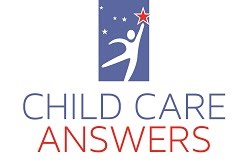Stopping Child Abuse One Child at a Time
Recognizing Abuse and What to Do About It
Sheila DayMay 01, 2010
The statistics are overwhelming. More than 20,000 Indiana children are abused or neglected every year. That breaks down to about 1,700 a month, or 56 kids a day. Translated another way: In every Indiana classroom, there are potentially three children who are suffering from abuse. Every day, children—maybe even someone in your child's classroom—are suffering abuse at the hands of another.
Many wonder how they can possibly make a difference against such a formidable enemy? My answer: The same way I can, the same way we all can. One child at a time.
Whether you work directly with children, or simply come into contact with them as your kids make friends and get involved, one of the best things every adult can do is to learn the key signs of child abuse and possible situations which may trigger such behavior.
Signs of trouble
First of all, child abuse is a broad term that can include several areas, including physical, sexual or emotional/verbal abuse, as well as medical neglect. For each of these, there may be different warning signals. Below are some of the most common physical and behavioral signs to indicate that something may not be right—that a child may need help.
Physical indicators of abuse:
* Unexplained bumps or lumps
* Burns by cigarettes
* Dental/oral injuries
* Unexplained bruises (in various stages of healing)
* Unexplained fractures, lacerations or abrasions
* Evidence of delayed or inappropriate treatment for injuries
Behavioral/social indicators of abuse:
* Withdrawn, self-destructive, aggressive behaviors
* Fear of being at home
* Complaints of soreness; uncomfortable movement
* Bizarre explanation of injuries
* Apprehension of adult contact
* Developmental lags
* School absenteeism
You may also be alerted to a dangerous situation by the caretaker. Common characteristics in caretakers include being an extremely harsh disciplinarian; describing a child in a consistently negative manner; abusing alcohol or drugs; being overly defensive; or concealing or misleading about a child's injury.
The stress of family situations
While there are certainly cases where domestic violence or substance abuse provoke the abuse of a child, you may be surprised to know that many abusive situations arise when a family is faced with a stressful situation. Where there is a lot of stress—job loss, poverty, marital discord, divorce, little support—and the abuser lacks the knowledge and the parenting skills to cope in a healthy way, there is often a climate prime for abuse.
In addition to educating yourself about what abuse may look like and what may prompt it, you should also be aware of the steps you can take if you are concerned about a child's welfare. While we cannot change the hurt children have suffered in the past, we can change how they are affected in the present and future. If you suspect child abuse or neglect, call the 24/7 hotline at Child Protective Services: 1-800-800-5556.
Sheila Day is a licensed social worker with the Child Protection Center at Peyton Manning Children's Hospital at St.Vincent. The center provides medical evaluation services for children when abuse or neglect is suspected.
SIDEBAR
Becoming Stewards of Children
The Peyton Manning Children's Hospital at St.Vincent is now offering a child sexual abuse prevention program to the general public and, specifically, adults who interact with kids as teachers, coaches, youth leaders, etc. Called Stewards of Children, this national program educates adults on to how to recognize the signs of sexual abuse and provides practical information on how to respond appropriately.
More information? 317-338-3153










